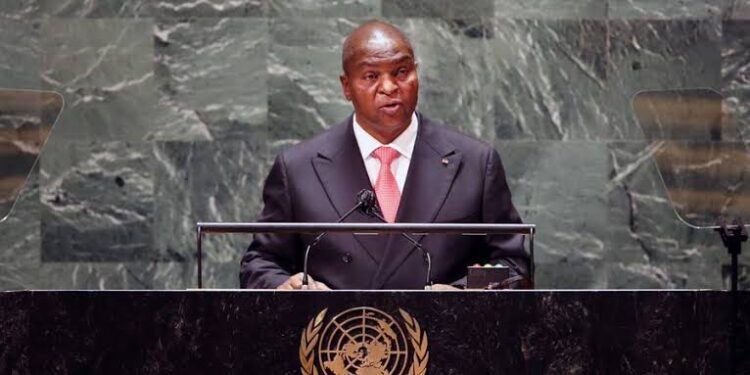The news: Two months after announcing the adoption of Bitcoin (BTC) as legal tender and legalizing the use of cryptocurrency in the region, President Faustin-Archange Touadéra of Central African Republic (CAR) has launched a cryptocurrency project called the Sango initiative. The announcement was made on July 3rd, 2022, at the Sango Coin Genesis Event where the Sango coin and crypto island were also announced as the two metaverse platforms that are to facilitate the Sango initiative.
What this means:
The Sango project is a digital monetary system powered by the bitcoin blockchain to integrate the country’s capital market and establish a solid crypto ecosystem within the country. This makes CAR the first country in Africa and the second in the world to adopt Bitcoin as a legal tender, with the first being El Salvador.
The adoption of BTC by CAR means that the country’s treasury will have a more dedicated Bitcoin reserve and all payments and transactions which would be carried about by citizens of the country will be powered by the blockchain technology.
The country of about 466 million people, holds a value of over $3 trillion in resources that have been laid to waste over the years. For over a decade, a civil war has eaten deep into the core of the nation and has crippled its progress, but the Sango project is one attempt at putting the country back together again.
Sango will also act as the catalyst for the tokenization of the country’s natural resources, whereby infrastructure will be democratized, so that anyone, anywhere can own virtual property in the country, with a 1:1 ratio representation in the Metaverse.
The vision is to offer “physical infrastructure with technology at its core”, so as to encourage local BTC acceptance, boost commerce and sustain growth within the country.
What are the challenges of cryptocurrency as legal tender?
Unpredictability:
Bitcoin is a highly unpredictable blockchain with fluctuations that could be positive or negative, hence, there is real guarantee of making profits.
A good example is the 2017/2018 fluctuation that saw bitcoin market capitalization surpass $300 billion in December of 2017, when Bitcoin price hit almost $20,000, and then by summer of 2018, market capitalization dropped to almost $100 billion.
Another unfortunate example is that of El Salvador which was the first country to adopt bitcoin in June, 2021. Between September 2021 and June 2022, the country which had invested up to $103 million in bitcoin has lost about 50.5% of her investment due to crypto collapse. This makes bitcoin blockchain technology no small risk for the faint of hearts.
Subject to Fraud:
In the United States of America, about $133 million in crypto has been lost owing to business and government impersonation scams since 2021. While romance crypto scams – a means of using social engineering to gain the trust of their targets, one of the popular schemes adopted by scammers, have resulted in the loss of over $180 million between January 2021 and March 2022.
These numbers have turned up in various countries where cryptocurrency is in use and a lot of people are skeptical about entrusting their wealth in such a venture. In June, 2022 the Central Bank of Ethiopia has warned members of its public to refrain from transactions involving digital currencies as they are yet to be recognized by the National Bank of Ethiopia (NBE).
Reactions to the development
Although the project has received unanimous backing from the CAR’s National Assembly, it has however received a lot of skepticism from a lot more ends. The biggest wall the project has faced is the World Bank which has refused to support it. The organization’s reason being that the CAR’s president cannot be trusted owing to his involvement with Russia and has been accused of looting the country’s resources.
Other complaints have also risen from citizens of the country who have aired their views on Twitter, voicing their fears for the future of their nation if the crypto deal backfires.
Additional reporting by Nuel Umahi, a staff writer at CrestHub.

































